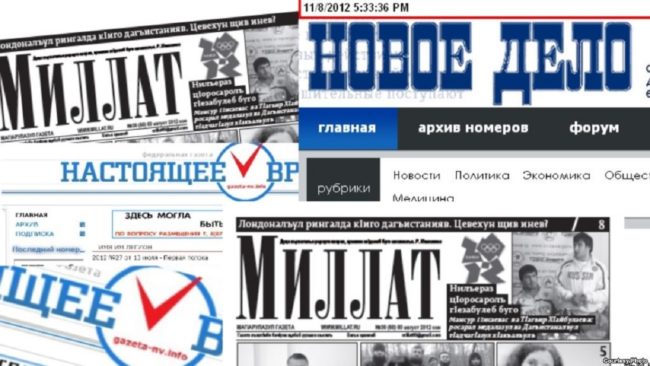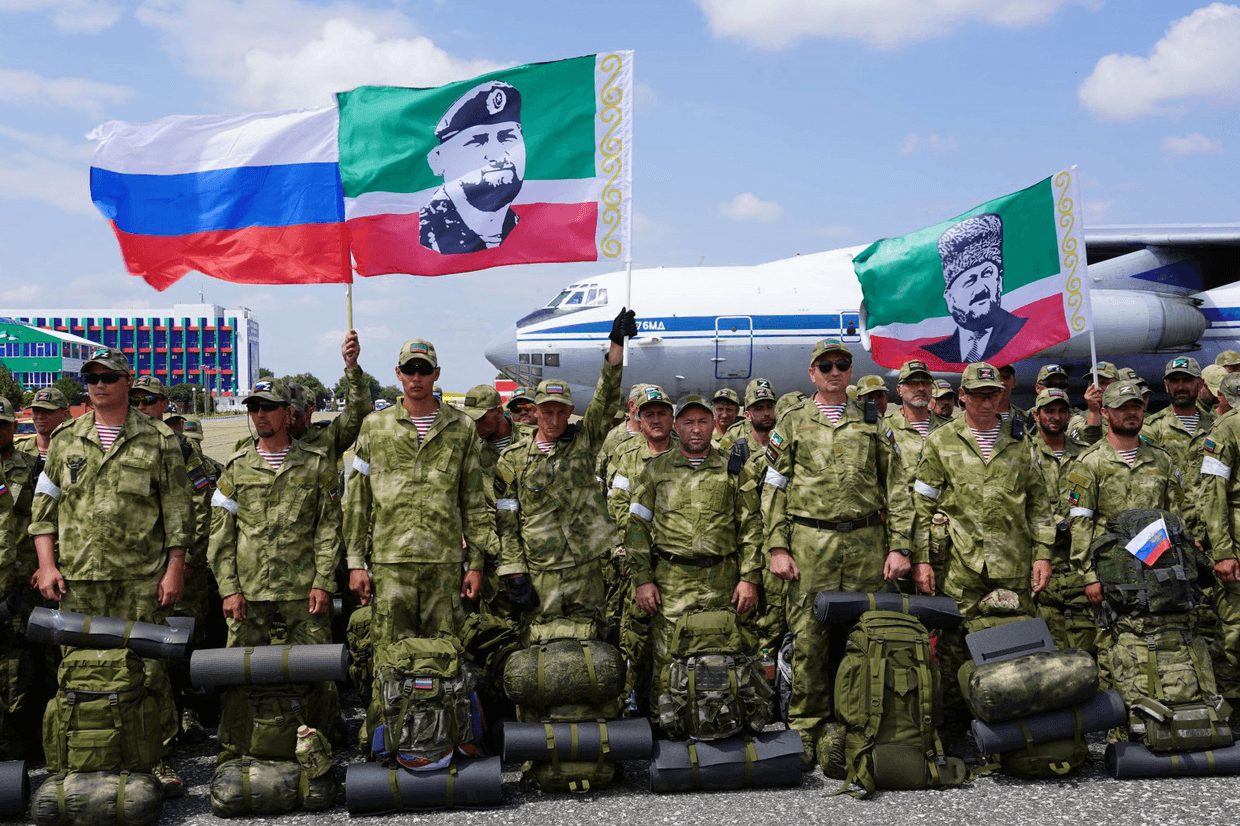

 The pressure exerted on journalists and human rights activists in the North Caucasus is the most severe in Russia, according to experts speaking at the Free Speech conference on 23 May in Moscow. The comments came at the presentation of a report on media freedom by the association of writers, journalists, and bloggers.
The pressure exerted on journalists and human rights activists in the North Caucasus is the most severe in Russia, according to experts speaking at the Free Speech conference on 23 May in Moscow. The comments came at the presentation of a report on media freedom by the association of writers, journalists, and bloggers.
According to Caucasian Knot, the report was based on information from Russian creative organisations and human rights and civil associations. The reports lists examples of pressure on freedom of speech by the authorities in various regions of Russia. This pressure include that on the media as well as artistic circles: artists, writers, film directors, and others.
The report noted that compared to other regions of Russia, harassment of journalists is the most acute in the North Caucasus.
Show trials
‘The repressions in the Caucasus are somewhat tougher, and [fabricated charges] are somewhat more rough’, Darya Kostromin, from the Memorial Human Rights Centre said.
The report cites criminal cases against Chechen correspondent for Caucasian Knot, Zhalavdi Geriyev, and the Chechen human rights activist Ruslan Kutayev, as examples of convictions brought on fabricated charges. The report also mentions the unsolved murder of Daghestani journalist Akhmednabi Akhmednabiyev.
Zhalavdi Geriyev was detained last year by Chechen police, who accused him of possession of drugs. The court found him guilty and sentenced him to three years in a penal colony. The Memorial Human Rights Centre considers Geriyev a political prisoner.
[Read an op-ed on Geriyev’s case on Open Democracy Russia: The disappearing journalists of the North Caucasus]
In July 2014, Chechen human rights activist Ruslan Kutayev was sentenced to four years in prison. The court found him guilty of illegal possession of drugs. Kutayev was detained after holding a conference dedicated to the anniversary of the deportation of the Chechen and Ingush peoples on 23 February. The date of the conference didn’t coincide with the new date of the Day of Remembrance and Grief, which is now observed on 10 May, in memory of Chechen Head Ramzan Kadyrov’s late father.
[Find out more: Chechnya’s courts: a tool for the authorities and a thorn in their side]
Murder of journalists
Daghestani journalist Akhmednabi Akhmednabiyev was shot dead on 9 July 2013. The investigation into his murder was repeatedly suspended, and has still not been solved.
Abdulla Duduyev, editor of the ‘first independent Caucasian journal’, Dosh, agrees with the report. He told OC Media that the murder of Dosh correspondent in Kabardino-Balkaria Timur Kuashev can also be included in the list of journalists persecuted for their work.
‘What also makes the work of journalists in the North Caucasus peculiar is that the lives of journalists, and other people as well, are valued less than in the rest of Russia. By and large, the problems in the North Caucasus are a burden for Moscow, that’s why they [the federal authorities] are happy to forget all the murders and incidents of violence in the region as soon as possible, as demonstrated by the unsolved murders of journalists and human rights activists in Daghestan, Chechnya, and Kabardino-Balkaria’, Duduyev said.
According to him, the situation has not changed even after meetings between activists and Russian President Vladimir Putin, as the authorities aren’t interested in solving the problems.
‘Members of the Presidential Council for Human Rights can raise these problems at every meeting with Putin, hand him letters about ineffective investigations or their complete absence in high-profile murders, but it doesn’t change anything. There is no interest in changing anything, there is no such task. Moreover, in my opinion, the problem is the opposite — to last as long as possible and hope that eventually these cases will be forgotten or those who demand the crimes to be solved will get tired and retreat’, Duduyev said.
In a comment for OC Media, Kavkaz.Realii journalist Zakir Magomedov said that the situation in different republics of the North Caucasus can vary.
A deteriorating situation
‘Recently it has become clear that the situation with freedom of speech in North Ossetia is deteriorating. Journalists from some media outlets aren’t being invited to any meetings, [the authorities] try to avoid them and don’t give them comments. [North Ossetian Head Vyacheslav] Bitarov indirectly criticised [North] Ossetian journalists, who, in his opinion, are very partial about the coverage of his activities’, Magomedov said.
According to him, the situation with freedom of speech in Daghestan is not critical, while in neighbouring Chechnya, both local and visiting journalists are in danger.
‘Several Chechen journalists had to leave the republic. In addition, visiting journalists who come to Chechnya to write about local problems can also face danger. The authorities need only good news from Chechnya. As for Daghestan, I would not say that the situation with freedom of speech is critical there. Yet, I think that the situation has been deteriorating over the past few years, perhaps this is related to internal self-censorship’, Magomedov said.
‘Perhaps, [the situation] is connected to a fear of consequences. I mean both physical consequences and legal action. But, despite the pressure from the authorities, the newspaper Chernovik continues to operate in Daghestan, actively criticising the current president and officials. Newspapers Svobodnaya Respublika and Novoye Delo also openly criticise the authorities’, Magomedov added.







